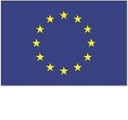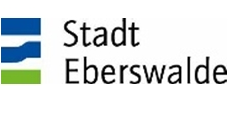Alternative WertschÃķpfungsnetze; Ãkonomische Bewertung und Steuerung (TP 08)
Ziele
In dem Teilprojekt werden Ãķkonomische Fragen zur Entwicklung alternativer WertschÃķpfungsnetze im Gesamtprojekt untersucht. Besonderes Augenmerk liegt hierbei auf der Bewertung und Steuerung von mÃķglichen Synergie- und Konkurrenzeffekten in der Landnutzung. Insofern spielt die Lebensmittelproduktion ebenso eine Rolle wie die Entwicklungschancen der Bioenergieproduktion oder des Tourismus. AbschlieÃend soll dieses Teilprojekt Handlungsempfehlungen dazu abgeben, wie nachhaltige regionale Wert-schÃķpfungsnetze gestaltet und gesteuert werden kÃķnnen.
Vorgehensweise
Da dieses Teilprojekt sowohl volks-, als auch betriebswirtschaftliche Dimensionen des nachhaltigen Landmanagements untersucht, ist der Einsatz einer Vielzahl von Theorien und Methoden notwendig. Der Entwurf alternativer WertschÃķpfungsnetze wird sich vor allem auf die Analyse von Transaktionskosten, WertschÃķpfungseffekten und Institutionen stÞtzen. Bei der Entwicklung von Steuerungs- und Betreibermodellen werden âIstâ und âSollâ von Organisationsformen miteinander verglichen. Auf Grundlage einer Entscheidungsmatrix und mit Hilfe einer Balanced Scorecard werden letztlich optimierte Betreibermodelle begleitend umgesetzt. Bei der Bewertung der RentabilitÃĪt integrierter Landmanagementsysteme werden dann abschlieÃend mit Hilfe von Computermodellen Prognosen zur wirtschaftlichen TragfÃĪhigkeit der untersuchten Landmanagementsysteme erarbeitet.
ELaN project description
Sub-project 08 A
coming soon
Sub-project 08 B
coming soon
Sub-project 08 C
Sub-project 08 C of ELaN (Entwicklung eines integrierten Landmanagements durch nachhaltige Wasser- und Stoffnutzung in Nordostdeutschland - Development of an Integrated Approach to Land Management for Sustainable Use of Water and Matter in North-Eastern Germany), a joint project funded by the German Federal Ministry of Education and Research (BMBF), will estimate the economic potential of innovative forms of biomass production such as planting short rotation coppices (willow, poplars) and growing reeds on rewetted wetlands compared to conventional crop farming and grassland use. The main focus is on the sustainable use of purified wastewater to support water management on land in the state of Brandenburg (in this case, the districts of Uckermark and Barnim) and to exploit the potential yield of energy crops in locations not affected by groundwater. Computer models will be used to simulate the impact of changes to overall political, technical and economic conditions on the competitiveness of innovative farming techniques. The GIS geographic information system will be used to visualise the economic viability of energy crops geographically depending on the water supply, soil quality and infrastructure at regional level.
Contacts: Dr. Anna Maria HÃĪring, Nicole Petzke | Info: /ELAN










